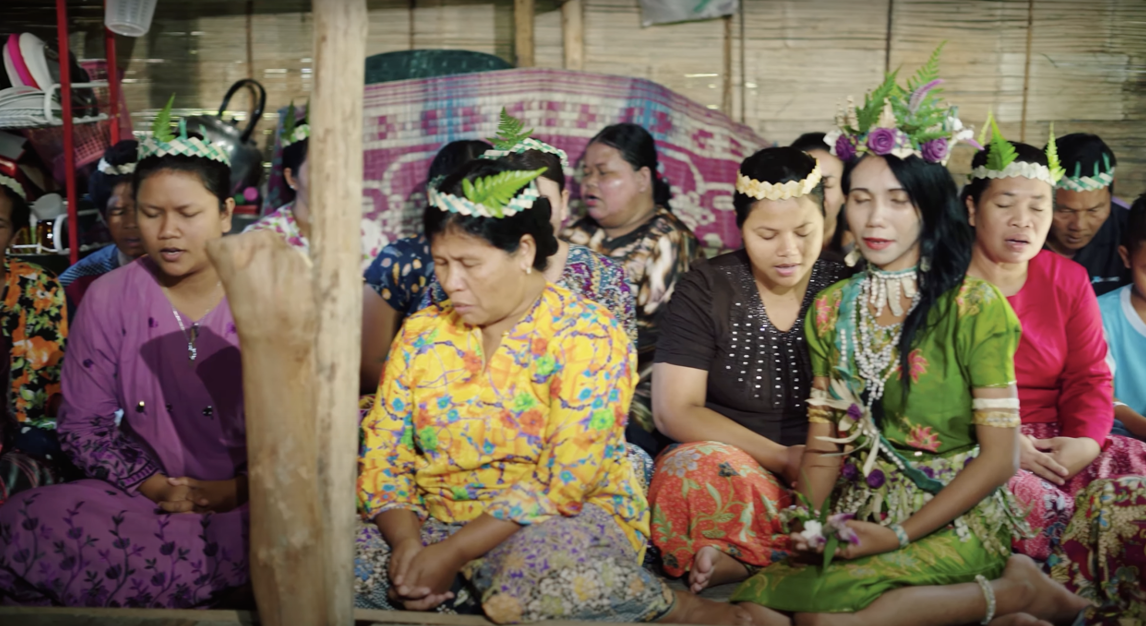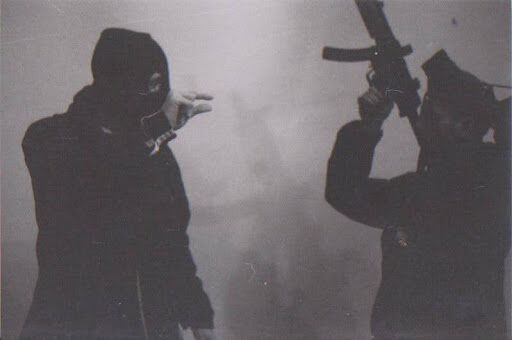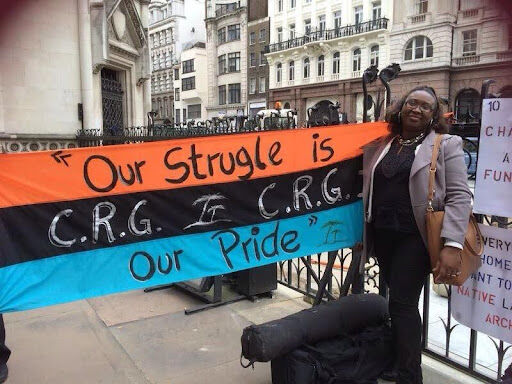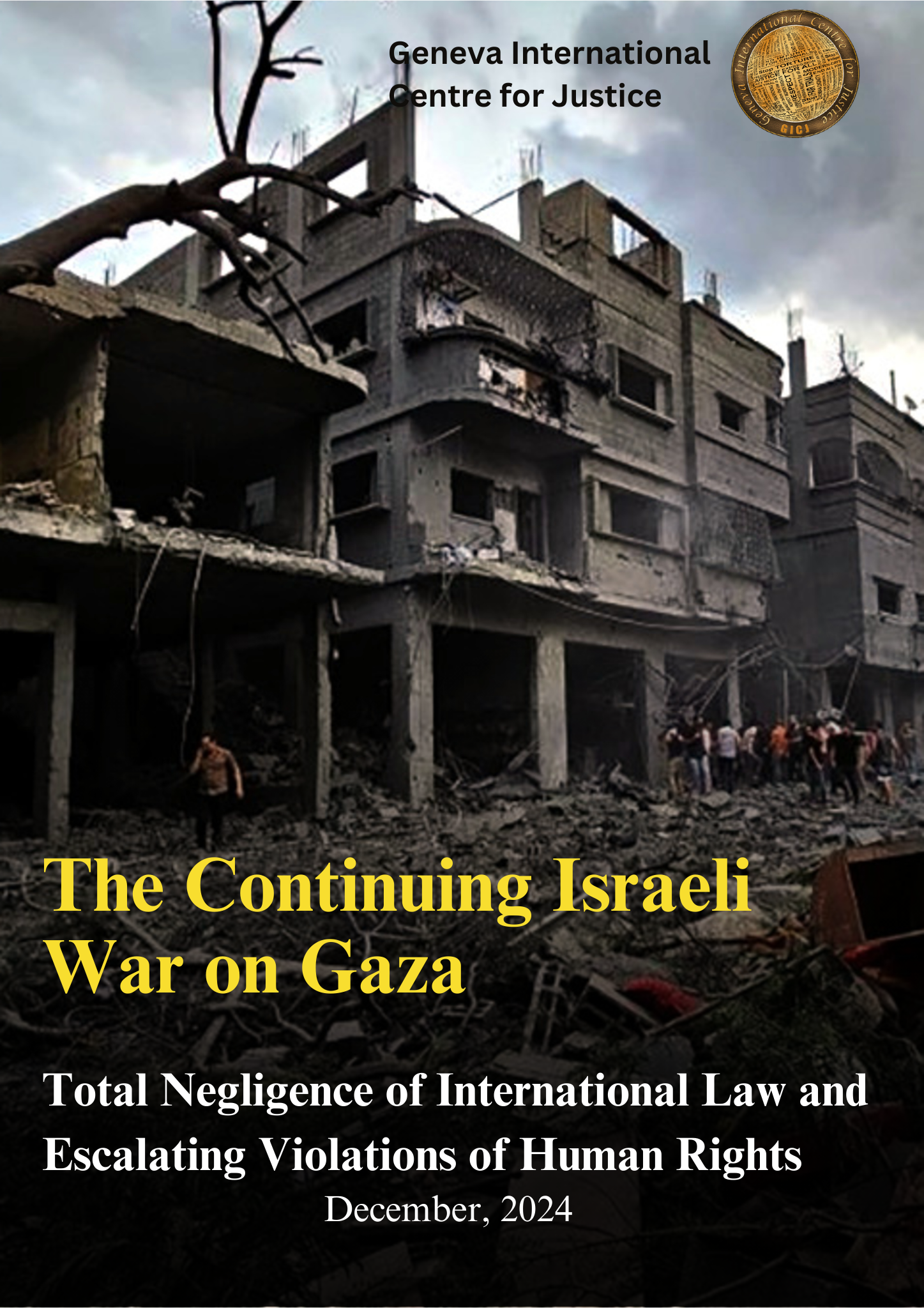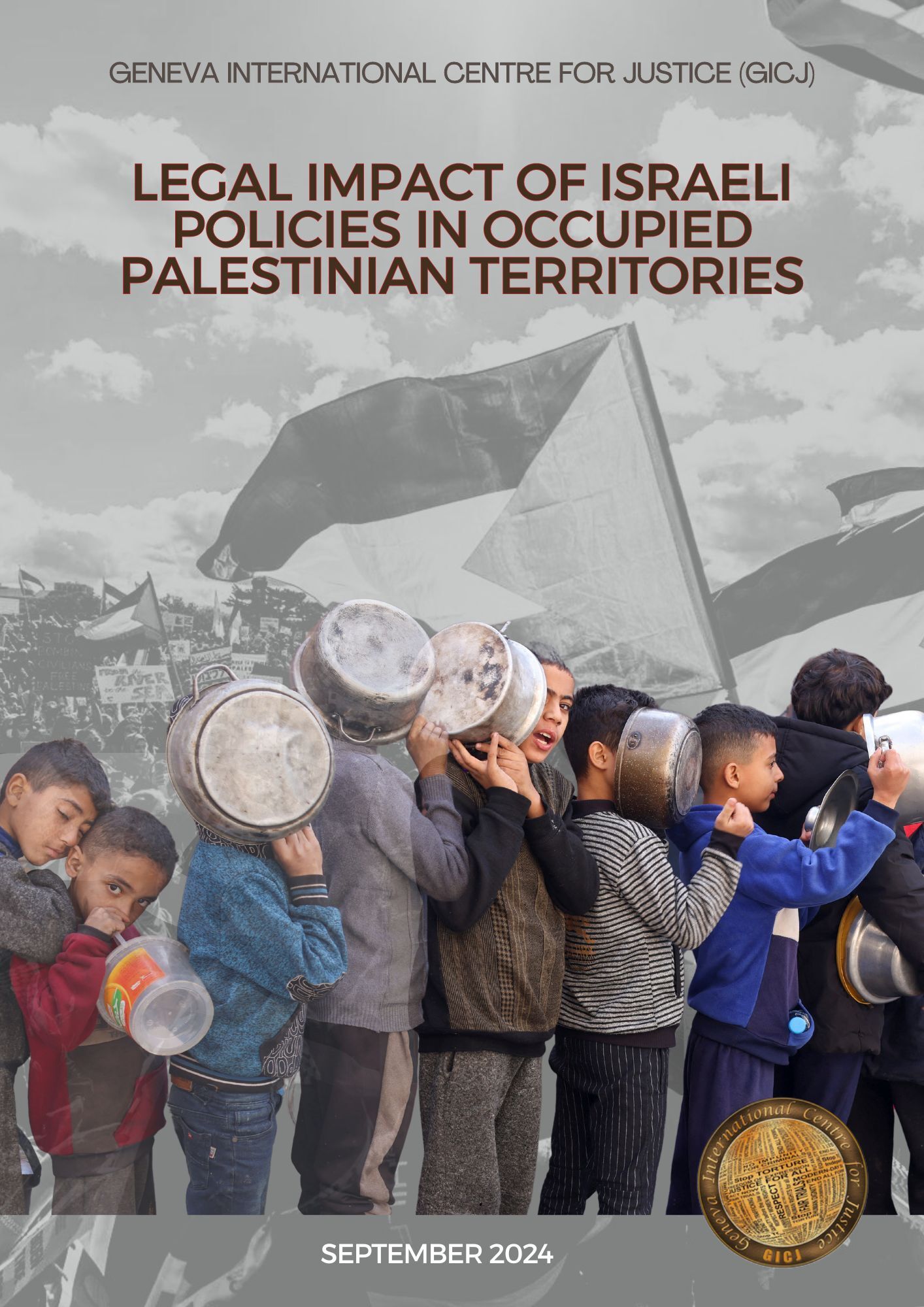
Today, 15 May 2017, Palestinians across the globe are marking the 69th anniversary of the Nakba – the 1948 expulsion and flight of tens of thousands Palestinians from historic Palestine that heralded in persistent oppression – commemorated annually on this day. The Nakba commemoration is a challenge to Israel’s ceaseless efforts to erase Palestinian cultural memory, national identity, political rights, and fundamental freedoms.
Historical Precedents
 The 1948 Israeli-Arab war, remembered by Palestinians as the Nakba (catastrophe), had as immediate result large-scale internal displacement and the expulsion and flight of more than 700,000 Palestinians to primarily neighboring Arab states, as well as the destruction of hundreds of Palestinian villages. This historic event constitutes the beginning of discrimination, dispossession and displacement of the Palestinian people, which continue until this day.
The 1948 Israeli-Arab war, remembered by Palestinians as the Nakba (catastrophe), had as immediate result large-scale internal displacement and the expulsion and flight of more than 700,000 Palestinians to primarily neighboring Arab states, as well as the destruction of hundreds of Palestinian villages. This historic event constitutes the beginning of discrimination, dispossession and displacement of the Palestinian people, which continue until this day.
Already before self-determination became a principle in international relations, Palestine, possessing a distinct culture and traditions and having been rooted for centuries in a defined territory, was recognized as one of the entities “whose existence as independent nations can be provisionally recognized”. When the Mandatory Power in its 1939 Statement of Policy recommended that Palestine be an independent and unified country which guarantees the rights of minorities, Zionist opposition, the Second World War, and large-scale Jewish immigration resulting from the horrors of the Holocaust thwarted the implementation of the provisions. The Palestine question was conferred to the UN, which recommended the partition of Palestine that was incongruent with the principle of self-determination enshrined in the Charter. While the partition plan was not formally implemented by the UN, the State of Israel was established and expanded its territorial control far beyond the borders allocated by the partition resolution until it occupied 77 percent of the territory of Palestine in the 1948 war, also occupying large parts of Jerusalem, which was to be internationalized under the resolution.
The preamble of the resolution admitting Israel as UN Member State explicitly mentioned Israel’s obligations to adhere to the UN Charter and to implement General Assembly resolutions 181 (II) and 194 (III), the former providing for the establishment of a Palestinian Arab State on basis of the partition borders and the latter demanding the return of Palestinian refugees. In contravention to the resolutions, Israel de facto annexed the territories occupied in 1948 by extending its laws as provided by the “Area of Jurisdiction and Powers Ordinance” to these territories, including West Jerusalem, which it declared Israel’s capital in 1950.
As a result of the 1967 war, during which Israel occupied the remaining territory of Palestine and systematically destroyed Palestinian villages and homes, an estimated half a million Palestinians fled their homes or were expelled, some of them becoming refugees for the second time since 1948. Building on and amending existent legislation, Israel continued to deny Palestinians right of return and furthered the confiscation and expropriation of Palestinian land and property, forcibly displacing uncountable Palestinians.

Notwithstanding landmark General Assembly resolution 194 (III) of 11 December 1948 and Security Council resolution 237 of 14 June 1967, as well as innumerable related resolutions, Israel persists in its denial of the rights of Palestinian refugees and displaced persons, particularly their right of return. In the absence of a just solution, many face immense suffering and deplorable conditions under occupation and in exile marked by vulnerability, dispossession and perilous socioeconomic situations. Israel’s population transfer and recurrent military operations result in incessant displacement among the Palestinian population, for which accountability and compensation remain absent.

Denial of Return under Apartheid
Palestinian displaced persons and refugees represent the largest and oldest case of displacement on the UN agenda and in the world today. Faced with Israeli apartheid policies and practices, Palestinians have been facing the harsh realities and constant threat of displacement for seven decades. Israeli apartheid – a system of oppression affecting the Palestinian people as a whole – embraces the millions of Palestinian refugees, whether they live under belligerent occupation in refugee camps in Palestine or in exile.

Two children playing by the door of their home in Dheisheh refugee camp.
[Photo by Misha Pook]
Indeed, the policy to preclude the return of refugees to their homes in Israel and occupied Palestine is part and parcel of Israeli apartheid: The State seeks to limit the Palestinian population of Mandate Palestine to secure its continued control over the territory and the people and to prevent Palestinian from demanding their fundamental rights. The State openly declares that Palestinians pose a “demographic threat” whose return would jeopardize Israel’s Jewish character1.
Israeli apartheid is anchored in the body of laws instituted after the State’s establishment in 1948. Discriminatory laws pertaining to entry and residence in Israel permanently forestall the right of return of refugees and attest to Israel’s policy of demographic engineering, which aims at the maintenance of Israel as Jewish State. Notably, Israel passed the Law of Return in 1950, which provides for the entry and reception of Israeli citizenship of Jews regardless of their countries of origin and connection to historic Palestine, while permanently denying the right of return to indigenous Palestinians, including those with documented ancestral property.
Not only does Israeli legislation ban the right of return, it also facilitates persistent forced displacement. Israel’s Basic Laws, applied within its own territory and from 1980 onward in occupied East Jerusalem, institutionalize discrimination in the field of land policy. On the basis of the Defense (Emergency) Regulations, incorporated in Israel’s domestic legislation and legal system governing the West Bank, Israeli authorities conduct, inter alia, house demolitions, deportations, and closures and curfews of Palestinian towns and villages. Israel’s discriminatory legislation is buttressed by the para-statal status allocated to right-wing Jewish organizations.
Ongoing Nakba
While the injustices of the 1948 Nakba and the 1967 Naksa still reverberate, Israeli illegal practices continue to cause extensive displacement among the Palestinian population inside Israel and in Occupied Palestine. Not only has Israel consistently prevented Palestinian refugees and displaced persons from returning to their homes, but it has also effected ongoing forcible internal displacement and dispossession on both sides of the Green Line (1949 Armistice Line), hence in Israel and occupied Palestine, through institutionalized racial discrimination against and oppression of the Palestinian population.
Forced displacement is a result of Israel’s recurrent military actions and its colonialist and apartheid activities disproportionately affecting the Palestinian population. Israel has fragmented the Palestinian people, which it submits to distinct policies and practices that share in common racial oppression and discrimination. The first factor is Israeli military operations, which are in grave breach of humanitarian law and are characterized by disproportionality and non-distinction. Israeli military attacks and operations in occupied Palestine have caused massive damage and destruction, thereby leading to large-scale internal displacement of civilians.

Central measures underlying the policy of forced population transfer for the purpose of establishing control, acquiring land and altering the demographic composition are home demolitions, confiscation and expropriation of Palestinian land and property, and unabated settlement and Wall construction. This is compounded by Israel’s closure and permit regime. On basis of discriminatory laws, military orders, and apartheid zoning and planning schemes, Israel has persistently and systematically conducted large-scale confiscation of Palestinian land and property for the sake of Jewish settlements in historic Palestine. As Palestinian property is declared Israeli State property without any possibility for compensation, Palestinians are forced to leave.

Israel’s creation of conditions that render life for Palestinians unbearable, particularly its control over the Palestinian economy and discriminatory allocation of vital infrastructure, essential services, and natural resources, is a further factor contributing to widespread displacement among Palestinians on both sides of the Green Line.
Since 1967, Israel has rescinded the residency status of tens of thousands of Palestinian East Jerusalemites, thereby permanently banning them from their home City (A/67/35). Palestinians in the remaining occupied Palestine also see their residency rights arbitrarily revoked. On the basis of discriminatory military orders, any Palestinian resident of the West Bank could fall under the definition of illegal “infiltrator” and be subject to forcible transfer or deportation to Gaza. Especially Palestinians holding residency permits with addresses in the Gaza Strip, even if they were born and live in the West Bank, are forcibly moved to Gaza.
The recent years have seen accelerating displacement for which accountability and compensation remain absent. Palestinians displaced or at risk of displacement have limited possibilities to seek redress from Israeli policies and practices and have to undergo protracted and wearisome bureaucratic processes, at whose end restitution of property or compensation for lost or destroyed belongings is rarely provided. The total number of Palestinians forcibly displaced persons by the end of 2015 was an estimate of 7.98 million, which amounts to 66 percent of the entire Palestinian population2.
Nakba Commemoration
For almost seven decades, Palestinians have observed this day to remember the dispersal of their people, to remind of the persistent plight, and to reaffirm their historic rootedness in and commitment to the land. Nakba commemorations in occupied Palestine have been met with severe restrictions and excessive force by the Occupying Power for decades. Marches, commemorations and protests in all parts of Palestine are regularly confronted with unwarranted excessive violence on the part of Israeli forces, which employ live ammunition, rubber-coated metal bullets, artillery shells, and tear gas to disperse demonstrations.

In recent years, Israeli authorities have intensified their clamping down on Nakba commemorations inside Israel, notably through new pieces of legislation. Such violations of the right to expression and assembly lay bare Israel’s contempt for principles of equality and nondiscrimination and unveil its collective oppression of the indigenous Palestinian population.
The Budget Foundations Law (“Nakba Law”), adopted on 22 March 2011, enables the Minister of Finance to withdraw state funding to public institutions, including schools and other local bodies, that organize any activities commemorating “the day of the establishment of the state as a day of mourning” or which contest the “the existence of Israel as a Jewish and democratic state”. Particularly, the law penalizes cultural, academic or other institutions that commemorate the Nakba and question Israel as “Jewish democracy”.
One week before Nakba Day, the Israeli right-wing Yisrael Beiteinu party proposed a bill introducing amendments to the aforementioned Law to sanction academic institutions that allow Nakba commemorations. The president of the Israeli Higher Education Council would empowered to severely sanction universities, colleges, and other academic institutions in Israel that provide Palestinian students with the possibility to initiate activities to “commemorate the Nakba or criticize Jewish and Zionist symbols”. The bill was met by overwhelming approval on the part of the ruling coalition parties.
Omar Khamaisi, Director of the Mezan Centre for Human Rights in Israel, told Middle East Monitor that the passing of such discriminatory laws disproportionately affecting the Palestinian population “reflects the escalation of racist atmosphere within Israeli society and the Knesset”. It is a further confirmation that Israel’s Apartheid State builds on the collective oppression of the Palestinian people and the negation of their national identity and political and human rights. It moreover seeks to undermine the Palestinian struggle – which preserves the right of return as fundamental principle. The underlying policy is the “Judaization” of the State and colonized Palestine.

Against all odds, Palestinians continue to commemorate the Nakba and to peacefully exercise their fundamental rights of expression and assembly. Indeed, such illegal activities will embolden Palestinians to assert their rights and strive towards the realization of their inalienable political rights.
Conclusion and Recommendations
Generations of Palestinians have lived in refugee camps all their lives. Many will die without having seen their homeland or original place of residence. In the absence of a just solution, many Palestine refugees and displaced persons face immense suffering and perilous socioeconomic conditions. Israeli policies and practices aimed at controlling their memories, their present lives, and future will not divert their pursuit for justice and freedom in their independent State of Palestine.
Geneva International Centre for Justice (GICJ) reaffirms that the rights of Palestinian refugees and displaced persons, including their right of return, do not diminish with the passage of time and remain cornerstone of a future solution to the Palestine question. Therefore, we urge the
United Nations and its relevant bodies to:
• Ensure the voluntary return and property restitution of Palestinian refugees and internally displaced persons in safety and dignity and compensation for suffered losses, such as the destruction of or damage to land, homes and property;
• Take all necessary measures to finally bring an end to the prolonged occupation of Palestine and fulfill Palestinians’ right to national self-determination, which involves the end of all annexationist and settlement activity and the illegal blockade on Gaza;
• Urge Israel to cease its discriminatory planning, development, and land system in occupied Palestine and within Israel and to rescind all policies and practices resulting in the forced eviction and transfer of Palestinians, including demolitions, confiscations, settlement and wall construction, and the creation of a coercive environment.
1. See ESCWA’s Report E/ESCWA/ECRI/2017/1 on the Israeli Practices towards the Palestinian People and the Question of Apartheid.
2. These included: 6.14 million refugees of the 1948 Nakba and their descendants. Among them are 5.09 million refugees registered with UNRWA and an additional one million unregistered refugees; Above one million refugees of the 1967 Naksa; and 720,000 internally displaced persons on both sides of the Green Line. (UNRWA, OPT emergency appeal 2017; http://www.badil.org/phocadownloadpap/badil-new/publications/research/in-focus/FT-Coercive-Environments.pdf)
النص بالعربية: هنا
Related articles by GICJ:
Scar(r)ed for Life: Everyday Violations around Israel's Illegal Settlements




